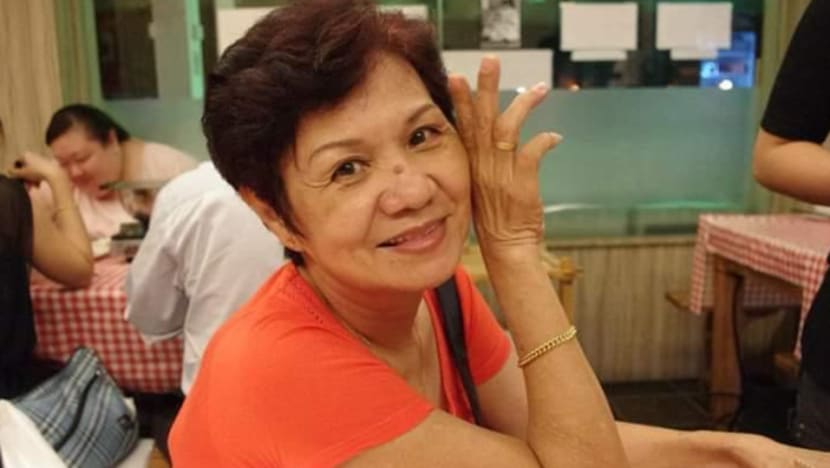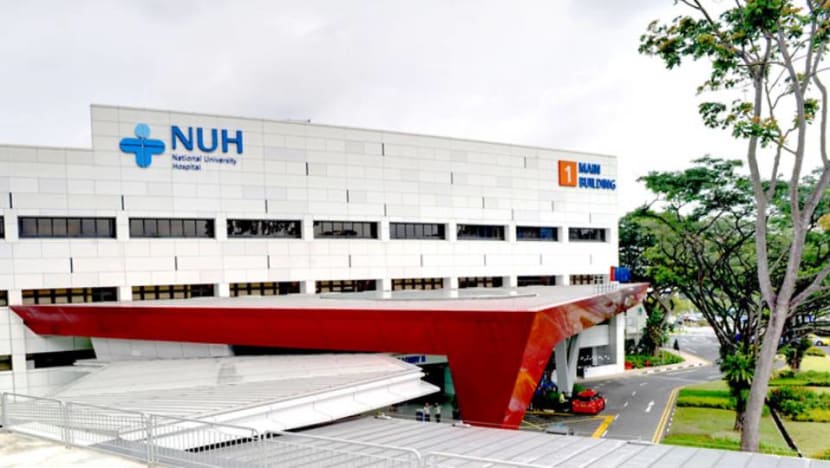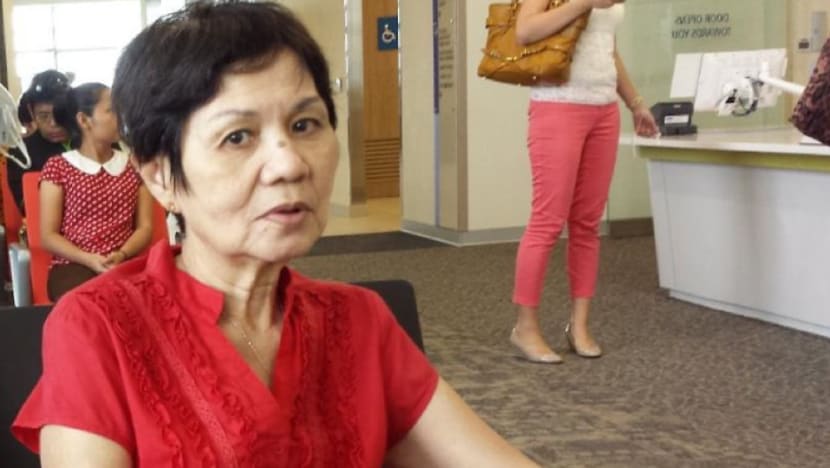Family of woman in vegetative state after brain operation sues NUH, head neurosurgeon

Madam Goh Guan Sin in happier times. (Photo: Mdm Goh's family)
SINGAPORE: The family of a woman who fell into a vegetative state after a brain operation is suing National University Hospital (NUH) and its head neurosurgeon over their alleged medical negligence.
Madam Goh Guan Sin, now 64, had gone to NUH in 2014 for surgery to remove a large tumour at the back of her head that was compressing her brainstem, the court heard on Wednesday (Apr 17), the first day of the trial.
After the surgery on Jun 2, 2014, performed by NUH's head of neurosurgery Dr Yeo Tseng Tsai, Mdm Goh suffered post-operative bleeding in the brain.
A team of senior neurosurgeons found that the bleeding involved the brainstem, and chose not to try and evacuate the blood clot due to the high risk of mortality.
Instead, the doctors, led by Dr Yeo, inserted an external ventricular drain (EVD) to drain the fluid that had accumulated in Mdm Goh's brain to relieve pressure and stop further damage from her brain swelling.
Although Mdm Goh survived, with the tumour successfully removed, she has been in a vegetative state for about five years and remains at NUH.
DOCTOR AND HOSPITAL FAILED TO MANAGE POST-OP COMPLICATIONS: LAWYER
Her lawyers, led by lead counsel Abraham Vergis, allege that she "has become irreversibly vegetative" since June 2014 "because the defendant doctor and hospital had woefully failed in their duties to the patient to manage her post-operative complications appropriately".
They allege that Mdm Goh's current vegetative state is the result of Dr Yeo and NUH's failure to diagnose and treat the cerebrospinal fluid accumulation inside her brain before the surgery; their failure to monitor and evaluate her condition immediately after the operation; and their failure to surgically evacuate the blood clot in her brain.
Mdm Goh's lawyers said that earlier clinical intervention of the blood clot would have prevented her vegetative state, and that an earlier CT scan would have revealed "an active, rapidly growing bleed" in her brain.

They also claim that Dr Yeo failed to advise Mdm Goh's family about the treatment and management she was receiving, and that Dr Yeo should have inserted an EVD first before removing the tumour.
HEAD NEUROSURGEON, HOSPITAL DENY CLAIMS
Dr Yeo's lawyers, led by Mr Lek Siang Pheng and his team from Dentons Rodyk & Davidson, deny Mdm Goh's family's allegations entirely. They claim that Dr Yeo had properly discharged his duty of care to Mdm Goh, and will call expert witnesses over the course of the trial to testify that Dr Yeo had indeed done so.
Dr Yeo’s lawyers will argue that Mdm Goh had given consent for the surgery, and that "a doctor owes a duty of care only to his or her patient and no one else", with no duty to obtain informed consent from the patient's family unless there is a legal representative appointed for such a purpose.

The hospital, represented by Senior Counsel Kuah Boon Theng and her team from Legal Clinic LLC, said in its opening statement that it accepts that "the post-operative complication had been devastating for the plaintiff and her family", but maintain that "it was not the result of any negligence on the part of its surgeons or staff".
NUH contends that the advice Mdm Goh and her family received on the nature and risks of the brain tumour surgery before the operation "was always correct, appropriate and adequate".
"The brain bleed that the plaintiff developed following the first surgery is a known complication which can happen even in the best of hands, and even when all due care and precautions are taken," said NUH's lawyers.
They added that Mdm Goh and her family "were specifically advised on the risk of bleeding and even death on multiple occasions".
Defending the decision to use an EVD to drain the fluid in Mdm Goh’s brain after the surgery, the hospital's lawyers said it "was an urgent decision that the neurosurgical team had to make under time-sensitive conditions based on the clinical information they had at that time".
In a statement to CNA later on Wednesday, NUH said that "there was no negligence or mismanagement".
“The hospital is aware of the family’s concerns. Mdm Goh suffered a complication following brain surgery, which was appropriately treated by the hospital’s surgery team," it said.
"The hospital’s review, with an independent specialist opinion, showed that appropriate care was rendered and there was no negligence or mismanagement. The hospital intends to defend the suit brought by the patient’s family," it added.
The trial, which is being heard before Justice Tan Siong Thye, is slated to run for a month. Witnesses that will be called to the stand include Dr Yeo himself and other doctors involved in Mdm Goh's case, as well as experts in neurosurgery, neuroradiology and radiology.














